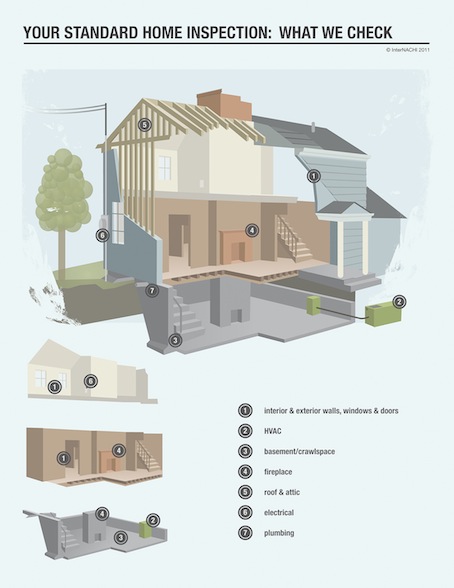During a general home inspection by pre purchase property inspections Melbourne, the general inspector usually assesses the following areas: Windows, roofs, ceilings, flooring, walls, doors, verandas, decks, garages, patio doors and staircases. He also inspects fixtures like sinks, toilets and washing machines. After inspecting an area, a home inspector compiles a report and presents it. You’ll have the peace of mind of knowing the condition of your home is in good condition.
In most cases, a general home inspection covers all aspects of your property. However, some inspectors typically focus on one area of a house or certain parts of a house. A plumbing inspector inspects the plumbing system. If he inspects the kitchen and bathrooms, he doesn’t include them in his report.
A general home inspection includes a list of items that need to be repaired or replaced. It doesn’t include items that are currently working fine. The inspector may recommend additional services or give you a list of items that he found lacking. The plumber inspector might suggest changing the heating system, installing an exhaust fan, or checking the water pressure. The inspector may offer additional services or a discount as part of the deal.
The roof is an area that should be regularly inspected as part of a general home inspection. No matter if your roof needs to get replaced, repaired, or inspected for potential leaks, a roof inspection can help you save money and avoid costly repairs. In most states, inspectors are required to inspect your roof every two years, although the specific time frame varies from state to state.
Another area that is typically reviewed for a general home inspection is the foundation. The report will likely include information about foundation repairs that are needed or anticipated to be required. Although a home inspection does not usually include basement inspections due to the fact that many inspectors include them in their regular Pre Purchase Building Inspections Melbourne service, some inspectors will include basement inspections. Many homeowners prefer to have their basement checked before doing any other work. The basement is often considered the most valuable storage space in the house and is usually larger than any other room in their home.
When you hire an inspector to give you a general home inspection report, you want to be sure to get a report that is free of surprises. Some companies charge you for inspections. Make sure that your inspector is charging you according to the hours of work he or she does. Also, you should find out if the inspector does all the work on-site or gives the job to another person. Companies that are charging you for inspections normally have very little experience doing the work themselves, so you should always choose companies that have extensive experience in the field of general home inspection.
The home inspector will most likely check the electrical system. This is something that can often be overlooked during a home inspection. Home inspectors are trained to recognize problems with the electrical system and will make sure all the necessary wiring is installed. Sometimes wiring problems can sneak up on homeowners, even though they may not be aware. Electrical problems can include appliances going on and off when they are not supposed to, lighting that does not go out when it is supposed to, and improper connections to the home’s electrical system. These problems can be easily detected by a general home inspection. However, it is important to detect them early so that the problem doesn’t get worse and becomes impossible to fix.
The third thing that the home inspector will usually do is check the radon levels in your home. Radon is a known carcinogen that can increase the risk of lung cancer significantly if it is present in enough amounts to trigger an individual’s cancerous growth. Radon gas is invisible to the naked eye, so you can only test for radon levels by using a special radon detector, which can be purchased at any hardware store. It is a very effective method to measure radon levels. However, home inspections are usually non-invasive so homeowners can unknowingly increase radon levels by installing poorly vented plumbing or too many basement windows.

